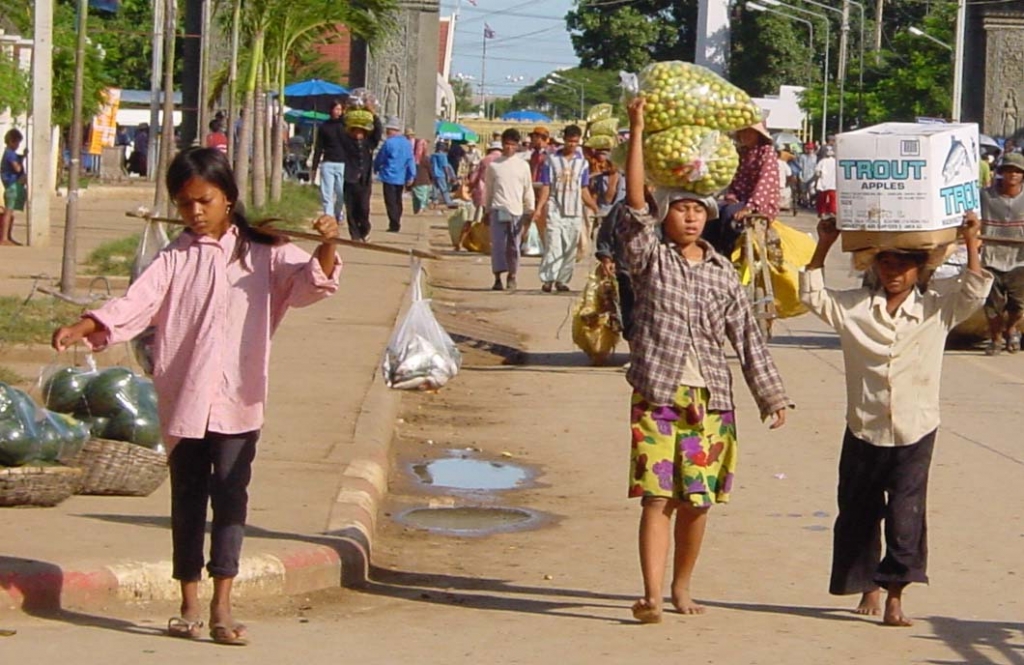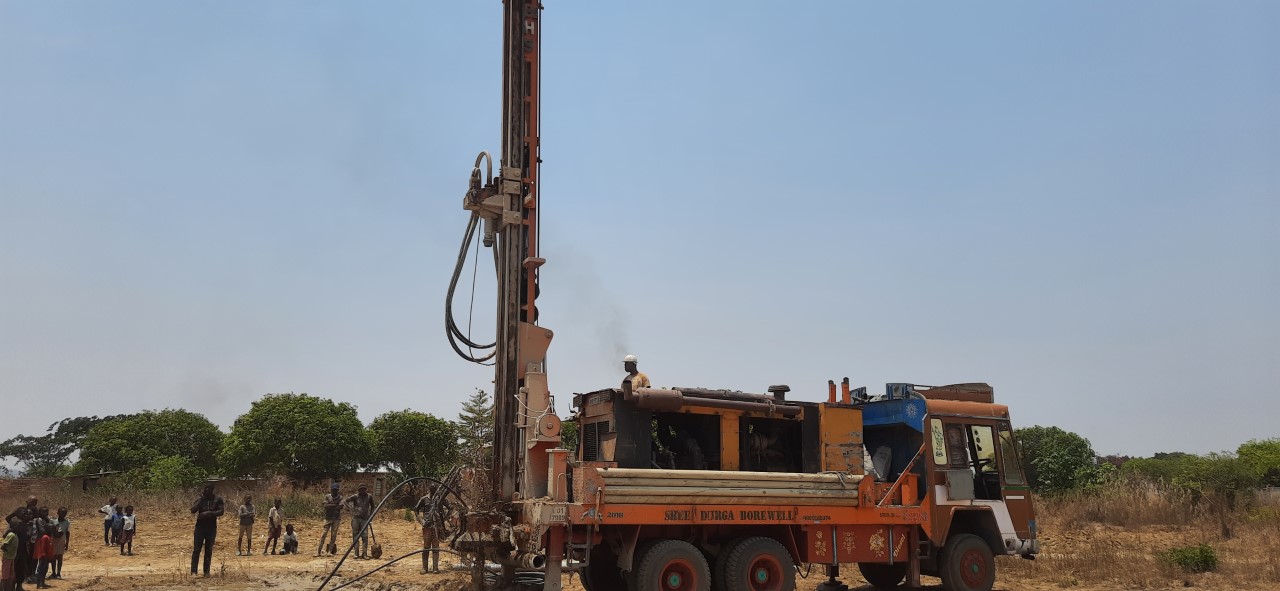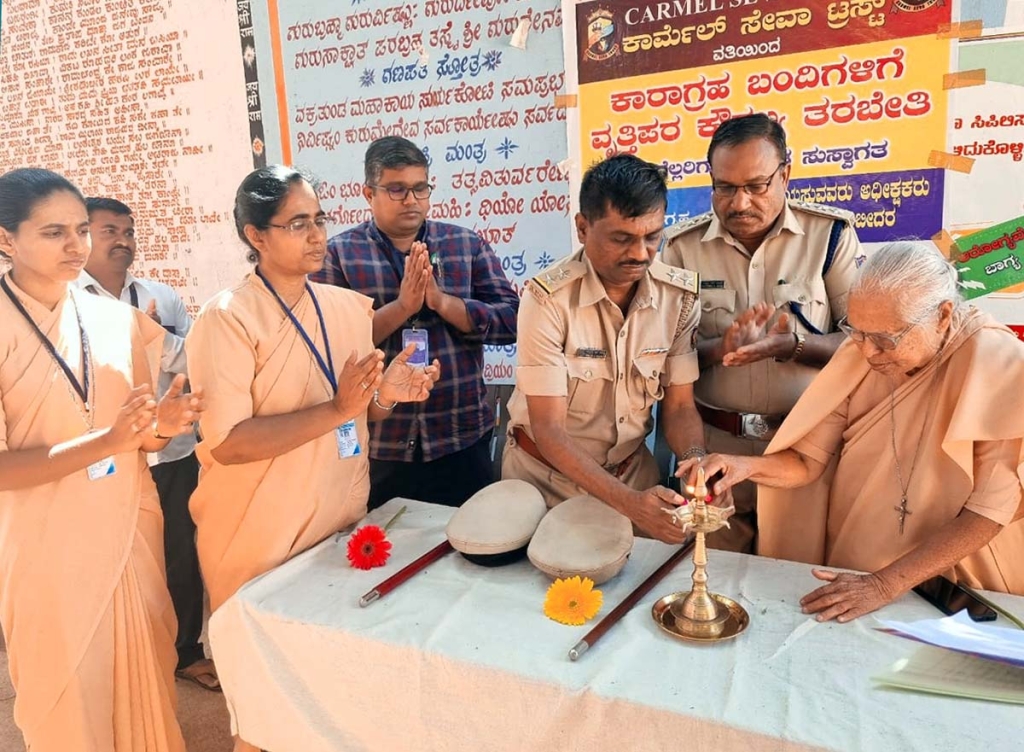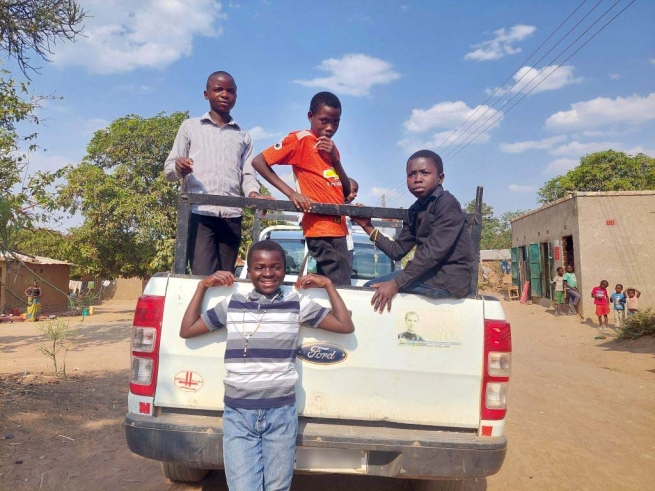WORLD DAY AGAINST CHILD LABOR: Salesian Missionaries Highlight Educational and Social Programs that Combat Child Labor

(MissionNewswire) Salesian Missions joins the International Labor Organization and other organizations around the globe in honoring World Day Against Child Labor. Launched in 2002, the day focuses attention on the global extent of child labor and the action and efforts needed to eliminate it. On this day, the United Nations, governments, employers and workers organizations, and civil society as well as millions of people from around the globe highlight the plight of child laborers and what can be done to help them.
Each year on June 12, the International Labor Organization sets a theme for World Day Against Child Labor corresponding to a current or future challenge. This year’s theme “In conflicts and disasters, protect children from child labor” is focused the plight of children in conflict zones who are more susceptible to being forced into child labor.
The International Labor Organization reports that in many areas of conflict, homes and schools are destroyed, families lose their means of income, and social protection systems break down, leaving children vulnerable and at-risk of child labor. Children who are forced by circumstance to become refugees and migrants are often at higher risk of child labor and human trafficking, especially if they become separated from their families.
Children who remain in conflict zones or who are left behind are vulnerable to the worst forms of child labor, including in mining or scavenging for metal and minerals in war-torn areas, clearing rubble, or working in the streets, according to the International Labor Organization. Children are often used by armed groups as child soldiers or as spies, helpers and porters or become victims of sexual exploitation and abuse.
“Children who are in vulnerable situations are at greater risk of being denied an education and compelled to work, leaving them at-risk of injury, exploitation, and trafficking,” says Father Mark Hyde, executive director of Salesian Missions, the U.S. development arm of the Salesians of Don Bosco. “Salesian programs around the globe aim to combat child labor through education, prevention programs like child rights education, and through programs that directly address the needs of migrants and refugees.”
In honor of World Day Against Child Labor 2017, Salesian Missions is proud to highlight Salesian programs around the globe that help to eliminate child labor through quality education.
COLOMBIA
Don Bosco City has been working with youth for 52 years and have saved more than 1,300 youth from a life of violence. It is estimated that close to 6,000 minors are still utilized as child soldiers with thousands more having reached their 18th birthday after years of combat. The long rehabilitation process focuses on three things youth need to learn – how to trust, to have hope for the future and to build relationships with others. Psychologists and teachers work together with youth, giving them the tools for a better future including providing basic education and more advanced skills training that will lead to stable employment.
Don Bosco City is one of the oldest and largest programs for street children in Latin America. Since its start in 1965, the program has rescued more than 83,000 boys and girls. Through the program, Salesian missionaries offer a multi-pronged approach designed to address the broad social issues that contribute to the poverty and exploitation these youth face while training them in the skills necessary to break the cycle of violence and poverty. Currently, there are 900 youth between the ages of 8 and 12, living and receiving education at the program. Salesian Father Rafael Bejarano, director of Don Bosco City, and James Areiza, program director for child protection, along with two former child soldiers, recently visited Rome, Italy to present a documentary on former child soldiers’ journeys toward recovery and reintegration
INDIA
Close to 100,000 children have been educated about their rights through 907 special clubs and courses offered in schools across India. This education is thanks to Salesian missionaries’ child rights education programs offered through the CREAM project (Child Rights Education and Action Movement – Action Movement and Education on Rights of Children), which is sponsored by the Office of Development of the Province of Bangalore (BREADS – Bangalore Rural Education and Development Society).
During the course of its four-year history, the project has seen other success including 1,571 dropouts that have been brought back to school, 1,144 youth that have been taken from dangerous child labor working conditions, and 1,473 street children helped through social reintegration programs. The project has also prevented 172 early marriages.
The project was initiated in December 2012 in order to reach the most disadvantaged children in 10 districts in the Indian state of Karnataka, especially in high risk urban rural areas. The goal was to work with youth to build a culture of protection of children’s rights. The project also puts a strong emphasis on improving the potential of minors as well as ensuring the sustainability of activities and results. The project has launched into its second phase working to reach 150,000 youth through child rights education.
KENYA
The Salesian-run Bosco Boys program provides education and technical skills training to former street children in Nairobi, Kenya and is currently serving more than 600 boys and girls in primary and secondary schools and universities. The program also operates two nursery schools in the slums of Kariua and Kuwinda.
Youth living in Nairobi’s slums are at-risk for exploitation, forced labor and other abuses. Few attend the later stages of school as compared to those living in Kenya’s more rural areas. The few schools serving this disadvantaged community are beyond the financial means of most families. UNICEF noted that while Kenya has free and compulsory education, youth in poverty still cannot afford to attend school resulting in close to 90 percent of children from poor households failing to complete their basic education. The Bosco Boys program provides education and workforce development opportunities. Students in the program who complete their primary education are assisted with secondary education or are advised to choose technical training in sister institutions. The secondary education is most often provided at Don Bosco Technical Secondary School, Embu, but can also be at another school close to a student’s home where they can be easily monitored.
MEXICO
Since 1987, the Salesian-run Tijuana Project has been providing services to migrants and poor youth living on the border between Mexico and the United States. The goal of the project is to create an extensive educational network in areas where poor youth are at risk of social exclusion, exploitation and child labor. The project took shape through Salesian oratories and educational centers where children grow up learning to share faith, culture and sports within their communities.
Many border towns are plagued by crime and violence such as the illegal trafficking of drugs, weapons, money and people where the consequences of social and political tensions between the two nations are felt. Salesian missionaries have been working in Mexico and in these border towns for more than 25 years and have recently increased cooperation between the Salesian Province of Mexico-Guadalajara and the Province of USA West. The goal is to work together to address the increase of violence and insecurity in the region and launch proposals for education, social integration, drug prevention and combating the effects of organized crime.
Currently, the Tijuana Project is serving more than 9,000 people in six Salesian oratories, a parish and a public dining hall which serves food to close to a thousand homeless and migrant people every day. The entire project is facilitated by six Salesian missionaries with the help of volunteers, local collaborators and benefactors in both Mexico and the United States.
###
Sources
Reliefweb International Labour Organization – World Day against Child Labour 2017: “In conflicts and disasters, protect children from child labour”
Don Bosco Salesian Portal – “Protecting Children from Child Labor”
ANS – “Protecting Children From Child Labor”: NO to Child Labor!
ANS PHOTO




